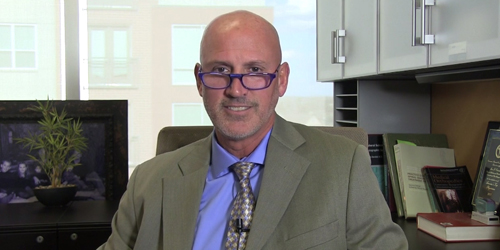
By Marc Orlando, MD
I hear the question several times a week: Do doctors at Mayfield Brain & Spine prescribe medical marijuana?
The short answer, at this time, is that Mayfield physicians do not prescribe medical marijuana.
First, some background. The Food and Drug Administration has approved medical marijuana for the treatment of pain (including from headaches and cancer), nausea, and depressed appetite. Medical marijuana, which is available by prescription from a dispensary, contains THC (tetrahydrocannabinol), the psychoactive ingredient that produces a high. This is in contrast with, cannabidiol, or CBD, a marijuana extract or oil that does not contain THC.
There are currently 29 states, including Ohio, that allow the medical use of marijuana. (Medical marijuana is illegal in Kentucky.) Each state has established its own list of conditions that can be treated with medical marijuana. In Ohio, diagnoses include ALS, Alzheimer’s disease, cancer, chronic pain, Crohn’s disease, chronic traumatic encephalopathy (CTE), epilepsy and seizure disorders, fibromyalgia, glaucoma, HIV-AIDS, hepatitis C, inflammatory bowel disease, multiple sclerosis, Parkinson’s disease, post-traumatic stress disorder (PTSD), sickle cell anemia, spinal cord injury, Tourette syndrome, traumatic brain injury, and ulcerative colitis.
By comparison, cannabidiol (CBD) is widely available online and at stores throughout the country. It is touted as a treatment for almost everything, including pain and anxiety. It even appears in some beauty products. The FDA has approved prescription CBD (Epidiolex) for the treatment of two severe types of seizure disorders.
In order to secure a prescription for medical marijuana, you need a medical marijuana card. You can get this card from a physician who has been trained (and licensed) to determine whether or not you qualify for one. A medical marijuana card is kind of like your driver’s license: It’s official; it’s a government document; and it enables you to secure product from a dispensary. The card should last two years before it needs to be recertified. The cost of medical marijuana can range from $300 to $500 per month.
At present, no Mayfield provider is certified to prescribe the medical marijuana card. Nor do we have plans to do so at this time.
Legal issues related to medical marijuana use
Legal implications are my biggest concern and one reason why Mayfield physicians have chosen not to prescribe marijuana medication cards. Consider this scenario: You undergo an employment drug screen, or a random drug screen, and register positive because you are taking a narcotic medicine for pain, a benzodiazepine for anxiety, or some type of muscle relaxant. As long as you have a prescription from a physician, your workplace will understand that you’re on the medication for health-related reasons, and your employment and medication usage will not be affected.
If you registered positive on a marijuana screen, however, you would fail your employment physical and drug screen. You would also fail a randomized screen. As a result, patients who take medical marijuana put their employment at risk.
Drug screens can be performed by testing a person’s blood, urine, or hair. Marijuana usage will register highest immediately after an individual has smoked, vaped, or consumed an edible product. It will then decline rapidly over several hours. Evidence of usage will remain in the urine of an infrequent user from 1 to 5 days, of a once-daily user for 1 to 3 weeks, and of a frequent user (multiple times per day) for 4 to 6 weeks.
The Ohio Automated Rx Reporting System (OARRS), which tracks controlled prescription drugs to patients, also tracks and monitors medical marijuana. So when we see new patients who have chronic pain, we know whether or not they are already taking medical marijuana. We can offer those who are already on a medical marijuana plan any and all medications with the exception of narcotic medications.
Regarding patients who have high morphine-equivalent doses, or MEDs, we ask that they reduce their opioid dose by at least 25 percent if they want to start taking medical marijuana or see a medical marijuana provider. We recommend this for the simple reason that we don’t want them to be over-medicated with medical marijuana and a high dose of narcotics. We are fully supportive of patients who are on a low narcotics dose (low MED) who wish to add medical marijuana to their pain therapy.
Marc Orlando, MD, is a physical medicine & rehabilitation specialist with Mayfield Brain & Spine.